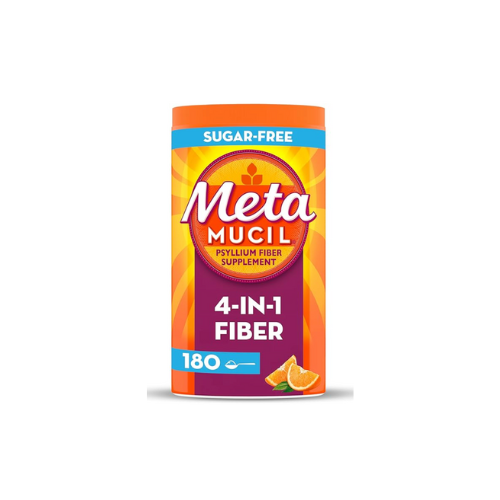Metamucil on Carnivore Diet
Evaluating Fiber Supplementation Benefits
The Carnivore Diet, an all-meat and animal products regimen, posits that the human body may not require dietary fiber for optimal health. Traditional nutritional advice frequently highlights the importance of fiber for digestion and health, fostering a belief that a fiber-free diet might lead to issues such as constipation. This has led some individuals on the carnivore diet to consider incorporating a fiber supplement like Metamucil to prevent potential digestive problems. Metamucil, a commonly used fiber supplement, is known for its ability to aid in digestion and promote regularity, but the question arises whether its integration into a carnivore diet is necessary or beneficial.
In exploring the compatibility of Metamucil with the carnivore diet, it is crucial to examine the diet’s foundational principles and the role of fiber in human health. Proponents of the carnivore diet argue that a meat-centric nutritional approach can provide all the necessary nutrients without the inclusion of plant-based fibers. However, some newcomers to the diet experience an adjustment period where digestion may be less consistent. They contemplate if supplements like sugar-free Metamucil could ease this transition without compromising the diet's integrity.
This assessment evaluates various perspectives on the issue, considering both the ideology behind the carnivore diet and the potential impacts of fiber supplementation on digestive processes. While empirical evidence specific to Metamucil's effects within the context of a carnivore diet is limited, understanding the general functions of fiber supplements and the mechanisms of meat-only diets provides insight into this dietary decision. The debate centers on whether the human digestive system can adapt to a fiber-free diet over time or if supplementation serves as a beneficial aid to maintain gastrointestinal health.
Understanding Carnivore Diet
The Carnivore Diet is an animal-based diet model emphasizing meat consumption and excluding plant-derived foods. It focuses on protein and fats, with a strict limitation on fiber intake.
Fundamentals of Carnivore Diet
The Carnivore Diet is characterized by its exclusive consumption of animal products including meat, fish, eggs, and certain dairy products. This diet is defined by high levels of protein and saturated fat, while being virtually devoid of carbohydrates. It eliminates all plant-based foods, resulting in a lack of dietary fiber. Those following the diet obtain nutrients primarily from the animal products consumed, which can provide essential vitamins and minerals.
Health Benefits and Risks
Proponents of the Carnivore Diet claim multiple health benefits such as weight loss, improved mental clarity, and reduced inflammation due to the high intake of animal proteins and fats, and the elimination of processed foods. However, it should be noted that there may be risks such as nutrient deficiencies and an increase in saturated fat intake, which may affect heart health. These risks highlight the importance of consulting healthcare professionals before making significant dietary changes.
Role of Fiber in a Carnivore Diet
Traditionally, fiber is associated with plant-based foods and is recognized for its role in maintaining digestive health. On a Carnivore Diet, fiber intake is minimal which may raise concerns about bowel regularity. Some followers of the diet choose to supplement with products like Metamucil to address potential constipation issues. However, it is essential to consider how introducing fiber supplements could affect the intended nutritional framework of the Carnivore Diet.
Metamucil and Carnivore Diet Interaction
When incorporating Metamucil, a fiber supplement, into a carnivore diet, it's crucial to understand its digestive effects, potential benefits, and associated risks.
Effects of Metamucil on Digestion
Metamucil, a soluble fiber, can alter digestion within a carnivore diet—a regimen devoid of plant-based fibers. Its primary component, psyllium husk, absorbs water, which can lead to bulkier and softer bowel movements. This process potentially eases symptoms of constipation, a concern for some individuals on a strict carnivore diet.
Potential Benefits of Adding Metamucil
Some proponents suggest that fiber like Metamucil could support the gut bacteria and microbiota, although the carnivore diet typically excludes fiber on the premise that meat contains all necessary nutrients. In certain cases, psyllium may help regulate digestive system function and contribute to a diverse gut microbiome.
Nutrition: Balances gut bacteria which may be affected by an all-meat diet.
Digestion: Might improve bowel regularity and alleviate constipation.
Risks and Considerations
However, introducing fiber supplements carries risks. Metamucil may cause bloating and abdominal discomfort, particularly in a dietary context unused to fiber. Scientific evidence is also mixed on the necessity of fiber for individuals thriving on meat-centric nutrition, hence the importance of a personalized approach.
Digestive System: Can introduce changes leading to discomfort.
Supplements: Interactions with an all-meat diet are not fully understood.
Dietary Concerns and Management
When adopting a carnivore diet, individuals may encounter certain dietary concerns such as constipation and nutrient deficiencies. Management strategies include adjusting the diet and incorporating supplements to ensure health and well-being.
Dealing with Constipation
The absence of fiber in a carnivore diet can lead to constipation. To address this, individuals may:
Increase their water intake to help soften stools and promote bowel movements.
Consume bone broth, which provides both hydration and nutrients that may support digestive health.
Consider a fiber supplement like Metamucil to add bulk to the stool, especially if transitioning from a diet high in fiber.
It's essential to monitor one's body response and adjust these strategies as needed.
Optimizing Nutrient Intake
While a carnivore diet is rich in certain nutrients such as protein and fat, it may lack others like Vitamin C or magnesium. Individuals might:
Choose organ meats, which are nutrient-dense and can provide a wider range of vitamins and minerals.
Implement collagen supplements to support joint and skin health, as it is not abundant in muscle meat alone.
Be mindful of maintaining an adequate salt intake to ensure proper electrolyte balance.
Incorporation of Supplements
Supplementation can be key in addressing potential nutrient gaps or health concerns:
Magnesium supplements can help mitigate the risk of constipation and support overall muscle and nerve function.
For those concerned about cholesterol levels, regular health check-ups and dietary adjustments, such as the inclusion of lean meats, are advisable.
A fiber supplement like Metamucil can be temporarily used to assist with bowel regularity while the body adjusts to the diet.
Individuals should consult healthcare professionals before starting any new supplement regimen.
For the most extensive selection, I suggest buying magnesium and fiber supplement online!
Carnivore Diet Foods Analysis
The Carnivore Diet eliminates plant-based foods and focuses exclusively on animal products. This section breaks down the diet's main components and offers guidance on what types of animal-based foods are typically consumed.
Types of Meats and Animal Products
Meat: Central to the carnivore diet, meat provides essential proteins and fats. Choices often include:
Steak: A common choice for its high fat and nutrition content.
Organ Meats: Liver, kidney, and heart are nutrient-rich options that provide a variety of vitamins and minerals.
Fish: It is a recommended part of the diet, with options like:
Salmon: Favored for its omega-3 fatty acids and protein.
List of Typical Animal Products Consumed:
Red Meat (What wine goes well with red meat?) (Beef)
Poultry (Chicken)
Game Meat
Bone Broth: Rich in collagen and helpful for joint health.
Role of Dairy and Eggs
Dairy: While some variations of the carnivore diet include dairy, it is important to choose high-fat and low-lactose products such as:
Butter
Cream
Certain Cheeses: Opt for full-fat varieties.
Eggs: Eggs are a complete food, rich in nutrients and proteins, and are fully embraced by the carnivore diet.
Acceptable Drinks and Side Notes
Drinks: The diet primarily encourages water. Bone broth is also acceptable for its nutritional benefits.
Side Notes:
Consumption of high-quality animal products is stressed to ensure a nutrient-dense intake.
Some individuals may include limited dairy products like cheese and butter, but it is generally advised to consume these in moderation due to their lactose content.
Please note the goal is to consume the full range of amino acids and micronutrients available in animal products.
Health Implications of Carnivore Diet
The carnivore diet has stirred interest due to its unconventional approach to eating; focusing solely on animal products, it may offer different health implications for chronic diseases, weight management, and gut health.
Impact on Chronic Diseases
Individuals with certain chronic diseases may see an alteration in their conditions when adopting a carnivore diet. For instance, some have reported improvements in autoimmune conditions and inflammatory bowel syndrome (IBS), potentially due to the elimination of plant-based irritants. The diet's heavy reliance on meat could influence cholesterol levels; however, its effects on heart and kidney health remain controversial. There is also some concern about an increased risk of conditions like colon cancer owing to the absence of fiber.
Potential Impact of Carnivore Diet on Chronic Diseases
Diabetes
Potential Impact: May improve glucose control
Obesity
Potential Impact: Could see weight loss
IBS (Irritable Bowel Syndrome)
Potential Impact: Symptoms might lessen
Cholesterol
Potential Impact: Varied effects on levels
Weight Management and Lifestyle Changes
The carnivore diet often leads to a lifestyle overhaul, with individuals typically consuming fewer meals or snacks due to higher satiety from protein and fat. Weight loss can occur from this caloric deficit, and some participants report a feeling of being energized. Conversely, the absence of plant-based foods can result in nutrient deficiencies if not carefully managed.
Lifestyle: Reduced frequency of eating, no snacking
Weight Loss: Often results from high protein, lower calorie consumption
Carnivore Diet and Gut Health
While the diet may offer relief for some by simplifying digestion and reducing bowel inflammation, the lack of fiber is a concern for other aspects of gut health. Fiber is a major contributor to a healthy gut microbiota, which plays a crucial role in overall health and disease prevention. The long-term effects of the carnivore diet on the gut microbiome and digestion are still under investigation, with some experts cautioning about impaired gut bacteria diversity and potential negative impacts on the liver.
Gut Bacteria: Potential reduced diversity
Digestion: Simplified process but lacks necessary fiber for optimal function
Comparative Dietary Perspectives
When evaluating the Carnivore diet, especially in the context of Metamucil supplementation, it's imperative to consider how this diet stands in relation to others, namely the Ketogenic and Plant-Based diets, in addition to traditional ancestral eating patterns.
Carnivore vs. Ketogenic Diet
The Carnivore diet is an all-animal-product regimen, where meat, organs, fat, and sometimes raw dairy and eggs are consumed exclusively. The diet fundamentally excludes plant-based foods, including vegetables, fruits, nuts, seeds, legumes, and grains. In contrast, the Ketogenic diet is a low-carbohydrate, high-fat diet that includes not only animal products but also allows for certain plant foods, particularly low-carb vegetables and sometimes nuts and seeds, which provide fiber and certain vitamins like Vitamin C. Both diets put the body into a state of ketosis but differ on micronutrient diversity due to the Ketogenic diet's inclusion of plant matter.
Carnivore Diet vs. Plant-Based Diets
Plant-Based diets, encompassing vegetables, fruits, whole grains, and at times legumes, contrast starkly with the Carnivore diet. These diets are rich in dietary fiber, carbohydrates, and a wider array of micronutrients. Proponents of Plant-Based diets argue that they are more aligned with human dietary needs, emphasizing the importance of fruits and vegetables for essential nutrients and fiber for gut health. The Carnivore diet, on the other hand, rejects the necessity outright of plant-derived nutrition, and fiber sources like Metamucil would be deemed unnecessary and incompatible with its principles.
Traditional Diets and Ancestral Eating Patterns
Ancestral eating patterns are often cited by Carnivore diet advocates, suggesting that early humans predominantly consumed animal products. However, it's important to note that traditional diets varied greatly depending on geographic availability and often included fruits, vegetables, seeds, and nuts. This variety provided a range of carbohydrates, fibers, and micronutrients which are largely absent in the modern Carnivore diet. The dietary fiber found in traditional diets, which is also a key component of products like Metamucil, is not considered within the Carnivore dietary framework, as it solely relies on animal sources for nutritional needs.
Controversies and Misconceptions
In the context of the carnivore diet, discussions often center around the nutritional sufficiency, particularly regarding meat consumption, fiber intake, and the potential long-term impacts on health.
Myths around Meat Consumption
Myth: Meat consumption, especially red meat, is invariably linked to increased cholesterol and heart disease.
Fact: While it’s true that red meat contains saturated fat, which can influence cholesterol levels, the relationship between saturated fat intake and heart disease is complex and not conclusively detrimental. Research findings are mixed, with some studies indicating no significant link between the two.
Myth: Eating red meat significantly raises the risk of cancer.
Fact: Reports have shown an association between red meat consumption and certain types of cancer, but this connection is not necessarily causal. Cancer development is multifactorial, and diets high in processed meats are more frequently linked to health issues than unprocessed meats.
Fiber Necessity Debate
Myth: A diet without vegetables and fruits is deficient in fiber, which is critical for digestive health.
Fact: Proponents of the carnivore diet suggest that dietary fiber is not a necessity for everyone and that the body can adapt to lower fiber intakes. However, this is a highly debated topic, and some individuals report the need for supplemental fiber, like Metamucil, to maintain digestive regularity.
Carnivore Diet and Longevity
Myth: Following a carnivore diet could lead to a shorter lifespan due to potential nutrient deficiencies and accumulation of health problems.
Fact: There is a lack of long-term epidemiological data on the carnivore diet to either confirm or refute its impact on longevity. Short-term reports from individuals often indicate improvements in specific health markers, but longer-term health outcomes remain uncertain.
Personal Experiences and Case Studies
In examining the metamorphosis people undergo on the carnivore diet, personal anecdotes and academic case studies reveal a spectrum of effects, ranging from weight loss to potential health challenges. These experiences are pivotal in understanding the diet's impact on individuals who opt to primarily consume animal products, and occasionally, dietary fiber supplements such as Metamucil.
High-Profile Advocates of Carnivore Diet
Shawn Baker and Joe Rogan are among the well-known figures who have publicly shared their carnivore diet journeys. They have reported positive outcomes such as weight loss, enhanced blood sugar levels, and entry into ketosis—a state where the body burns fat instead of carbohydrates for energy. These advocates contribute to the diet's following by sharing their high-profile stories on various media platforms.
Shawn Baker, an orthopedic surgeon, embraces the diet and has become a vocal proponent. He claims significant health benefits from adopting this lifestyle.
Joe Rogan, a comedian and podcast host, experienced weight loss and overall health improvement, which he has discussed on his podcast.
Success Stories and Testimonials
Testimonials often cite a range of health benefits such as improved body weight, pain reduction, and better mental clarity. Anecdotal evidence suggests that individuals find distinct improvements in their physical and mental well-being after adopting the carnivore diet. For some, incorporating products like Metamucil has been reportedly helpful in managing digestive health during the transition to carnivore eating habits.
Individuals report feeling more resilient and experiencing emotional balance.
People tracking health metrics have noticed stabilization in blood sugar levels.
Challenges and Adverse Effects Reported
While the carnivore diet has its advocates, there are those who report challenges, including digestive discomfort and adverse health effects. Some individuals find the exclusion of plant fibers challenging and integrate supplements like Metamucil to mitigate issues like constipation.
Reports from online forums, such as Reddit, indicate that some participants find the need for fiber supplements like Metamucil to maintain digestive regularity.
On the contrary, other carnivore adherents suggest that the diet alone can resolve digestive issues and that fiber supplementation may be unnecessary or only temporarily required.
Practical Guide to Starting a Carnivore Diet
Starting a carnivore diet requires careful consideration of meal composition and nutrient intake, focusing solely on animal products for sustenance. This section provides practical tips for meal planning, shopping, and smoothly transitioning to this dietary change.
Meal Planning and Preparation
When planning meals on a carnivore diet, individuals should prioritize a variety of meats to ensure adequate intake of protein and fat.
Steak: A rich source of protein and fat; can be eaten daily.
Eggs: Offer a complete protein profile; ideal for breakfast or as snacks.
Ground Beef/Lamb/Pork: Useful for creating diverse meals from burgers to meatballs.
Bacon: Provides high-fat content; however, should be consumed in moderation.
Incorporating organ meats like beef liver ensures a rich intake of vitamins and minerals. Seafood, particularly fatty fish like salmon, provides essential omega-3 fatty acids. Meals should be prepared simply, focusing on cooking methods like grilling, roasting, or pan-searing, and primarily seasoned with salt to taste.
Shopping List and Budget Tips
An effective shopping list for the carnivore diet would emphasize:
Meat: Grass-fed and pasture-raised options, if budget permits.
Eggs: Free-range or organic.
Seafood: Wild-caught like salmon for omega-3s.
Organ Meats: Such as beef liver for micronutrients.
To manage budget:
Buy in Bulk: Purchase larger cuts of meat to save money.
Discounts and Sales: Look out for deals at local butchers or supermarkets.
Rendered Fat: Can be used for cooking and is often less expensive than other cooking fats.
Transitioning to a Carnivore Diet
Transitioning to a carnivore diet should be done gradually to allow the body to adjust to the new high-protein, high-fat regimen.
First Week: One might start by having one carnivore meal a day, gradually increasing meat intake with each meal.
Hydration: Drink ample water to support metabolic processes and aid in digestion of the increased protein intake.
Adjustment Period: Be prepared for an adaptation phase where the body switches from using carbohydrates to fats for energy, which may involve flu-like symptoms, known as the "keto flu."
Conclusion
In adherence to a carnivore diet, individuals typically consume only animal products, which inherently implies the exclusion of fiber from plant sources. Metamucil, a fiber supplement, has been considered by some on this diet to mitigate potential digestive adjustments.
Metamucil on a carnivore diet may be beneficial for those transitioning to the diet or experiencing digestive irregularities. The supplement's primary component, psyllium husk, aids in digestion by enhancing stool bulk and facilitating smoother bowel movements. It's important to note, soluble fiber from Metamucil does not negate the carnivore diet's benefits and might assist in weight management by promoting satiety.
Essential nutrients required for health can be obtained from animal products; however, some individuals may contemplate fiber supplementation as insurance for digestive health. The carnivore community showcases varying perspectives on this topic, with some advocating for the occasional usage of Metamucil and others suggesting a strict adherence to animal products alone.
Incorporating Metamucil should be a personalized decision, evaluated in the context of individual health responses and dietary goals. It is crucial for individuals to monitor their body's reaction and adapt their diet accordingly, ensuring they continue to derive the perceived health benefits of the carnivore diet, which includes simplified meal planning and potential improvements in certain health markers.
The use of Metamucil within the confines of the carnivore diet may aid some in maintaining digestive comfort without detracting from the diet's principles. Users should opt for the sugar-free version to avoid unwanted carbohydrates.














